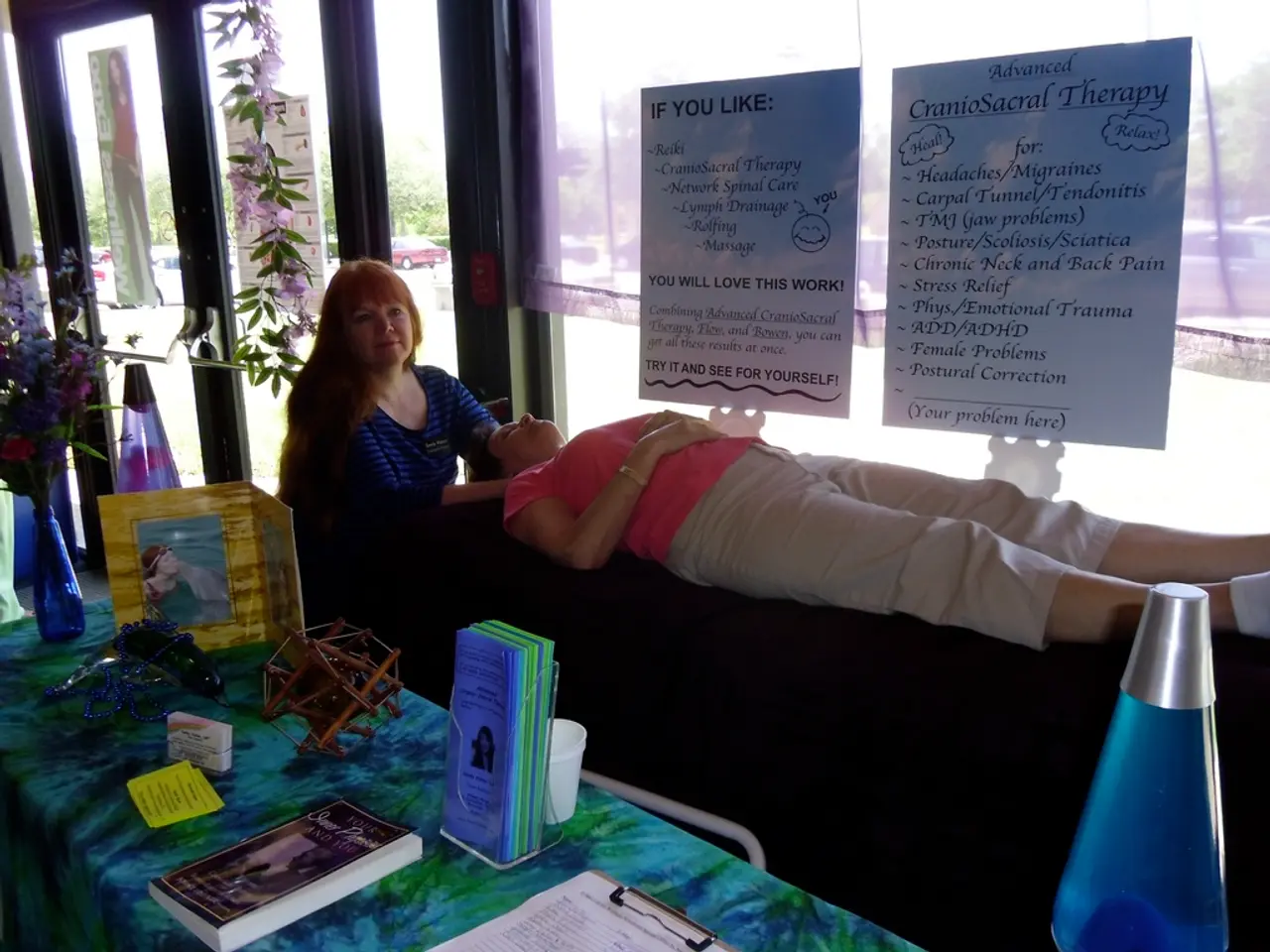Managing Anxiety Over Reoccurrence of Cancer
In the face of cancer, anxiety and fear are common emotions experienced by many. Dr. Karen Hurley, a psychologist, advocates for a three-step process known as "information hygiene" to help manage these feelings: form a specific question, limit searches to trusted sources, and step away from the computer or phone to process the information.
Understanding the feelings contributing to cancer anxiety is essential in addressing it. Cancer anxiety can be accompanied by feelings of anger, frustration, and a desire to protect oneself, especially when it comes to the fear of cancer recurrence or progression.
To cope with this anxiety, individuals can employ a combination of stress management techniques, practical exercises, and support resources tailored to their emotional and physical needs.
Managing Stress
Managing stress through activities like exercise, meditation, and creative outlets is crucial. These activities help regulate emotions and build resilience. Returning to previous physical activity routines or starting gentle exercises such as walking or yoga can be beneficial.
Improving Sleep Hygiene
Practicing good sleep hygiene is essential to improve emotional regulation. Poor sleep can worsen anxiety and irritability.
Seeking Emotional Support
Seeking emotional support from trusted friends, family, or cancer survivor support groups can provide a safe environment to share feelings, reduce loneliness, and learn coping strategies from others with similar experiences.
Talking with Healthcare Providers
Talking with healthcare providers, including mental health professionals, about anxiety and depression is vital. Psychotherapy can help reframe thoughts and develop stress management skills. In some cases, medication may be prescribed to reduce the intensity of anxiety symptoms.
Using Relaxation and Mindfulness Techniques
Relaxation and mindfulness techniques, such as breathing exercises, can help lower anxiety. These techniques are often demonstrated by cancer care advisors.
Engaging in Follow-Up Care
Attending all follow-up appointments, despite fears, is important. These visits offer opportunities to discuss symptoms and receive reassurance, which can reduce uncertainty and stress.
Therapeutic Activities
Therapeutic activities like music therapy can improve anxiety and depression for some people with cancer.
Connecting with Community Resources
Connecting with community resources and programs that offer counseling, education, and advocacy tailored to people living with or beyond cancer can provide additional support. Health systems and organizations like the American Cancer Society can assist in finding suitable support.
These strategies help individuals acknowledge and process their unique emotions related to cancer, cultivate resilience, and improve quality of life. Timely access to psychosocial support is critical, as anxiety and depression can impact treatment outcomes and overall recovery.
Dr. Hurley also teaches mind-body techniques for stress relief to individuals dealing with cancer anxiety, including the "breath brush," color naming, and coping statements. Over-researching symptoms and statistics related to cancer can overexpose individuals to anxiety-provoking information. Coping statements focus on things that are real and true about one's situation, such as "I'm doing what I can do with what I have" or "I'm in good hands with my healthcare team."
The "breath brush" exercise involves imagining a breath traveling inside you, finding anxious sensations, and lightly brushing over them to cultivate a gentle relationship with anxiety. People may feel demoralized if cancer has knocked them off track from important life goals, and the process of getting back on track after cancer treatment can be difficult.
Consciousness-raising campaigns around cancer, including Breast Cancer Awareness Month, can be overwhelming for some individuals living with or in remission from cancer. Communicating thoughts and feelings to one's medical team can help them better support individuals dealing with cancer anxiety. The color naming exercise distracts from rising anxiety by activating verbal and organizational areas of the brain.
Hearing about others' cancer diagnoses, recurrences, or progressions can trigger feelings of empathy and lead to the reliving of one's own traumatic experiences. People may feel lost and vulnerable when making plans or cultivating hopes after cancer treatment. However, with the right strategies and support, it is possible to navigate these emotions and move forward.
- Apart from exercise, meditation, and creative outlets, individuals can also manage stress by employing activities like the "breath brush," color naming, and coping statements, as taught by Dr. Karen Hurley.
- To address anxiety and depression associated with cancer, it's crucial to talk with healthcare providers, including mental health professionals, who can provide psychotherapy to reframe thoughts and develop stress management skills.
- Engaging in follow-up care after cancer treatment, despite fears, is important as these visits offer opportunities to discuss symptoms and receive reassurance, which can reduce uncertainty and stress.
- Seeking support from community resources and programs that offer counseling, education, and advocacy tailored to people living with or beyond cancer is essential. These resources can provide additional support and help individuals navigate their unique emotions related to cancer.




